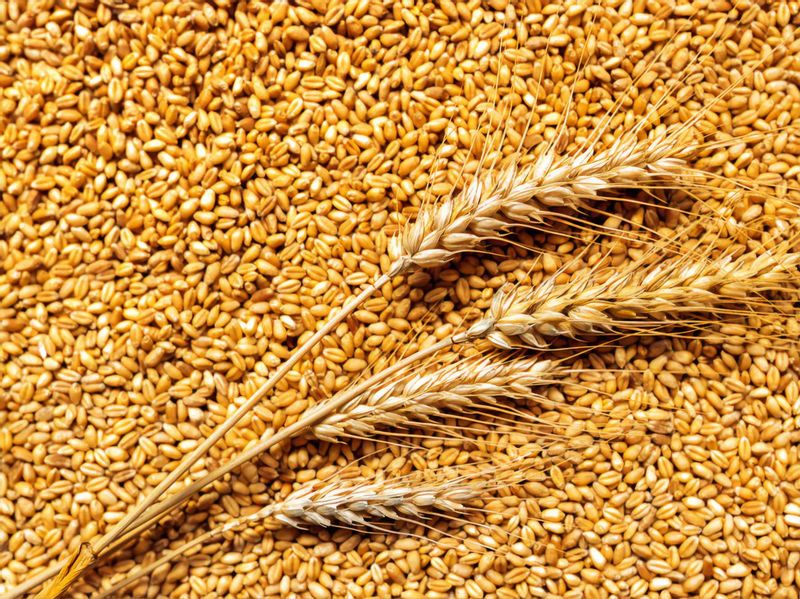India: Govt considering express approval for export of 1.1 mn tonnes of wheat stuck at ports

With an eye on the impending monsoon season, the government is considering measures to quickly allow the export of more than a million tonnes of wheat, currently trapped at the ports, officials in the know, said. This would entail putting in place a fast-track mechanism to scrutinise and allow export applications for wheat, they added.
On May 13, India banned the export of wheat in light of a much lower-than-forecast wheat harvest and spiralling inflation. However, it had allowed exports against valid irrevocable Letters of Credit (LCs) issued on or before that date as a transitional arrangement. Since then, exporters have been using a registration process being run by the Commerce Department to apply for shipping out wheat.
Since the export ban went live, export applications for 1.5 million tonnes of wheat stock have reportedly been rejected, while 1.4 million tonnes have been cleared. Officials told Moneycontrol that applications for an additional 1.1 million tonnes of wheat await scrutiny at ports. While parts of this stock are stored in warehouses, much of it remains under simple tarpaulin in large yards holding commodities.
Given the general lack of proper storage facilities, grains have historically always been stored like this at ports. “Add to this the surge in trade volumes over the past year and the continuing shortage of shipping containers that have thrown shipping schedules haywire, storage space at major ports are already scarce,” an official said.
“As is always the case whenever a ban comes into effect, some traders try to sneak out shipments since they are under obligation to their overseas buyers or want to profit from the sudden rise in export prices. Merchandise which had already received initial approval but is pending a final inspection is most susceptible to falling through the cracks,” a DGFT official said.
An LC is issued by one bank to another, especially one in a different country, to serve as a guarantee for payments. It is used extensively in global trade where most shipments are sent off based on the legal backing of the LC.
Export LCs serve as contractual agreements on the part of the issuing bank, on behalf of an importer, promising to pay the beneficiary or exporter, provided conditions specified in the LC have been satisfied.
Checking all the components of this process remains a time-consuming practice and has become a challenge due to a much-lower-than-required number of officials serving at ports, the DGFT official added. Last week, the DGFT issued a new order to ensure that exporters are issued the final Registration Certificates (RCs) only after physical verification, which has slowed the process.
“In order to plug the loophole, it has been decided that Regional Authorities will conduct a physical verification of all LCs, whether already approved or under process,” the government said in the order. Wherever necessary, help of a professional agency may be taken for such verification, it added.
The Commerce Department has been informed that the wheat stock may start getting damaged due to rains which are slated to start by next week. The South Western monsoon usually sets in over Kerala on June 1, spreading in the northern and north-eastern direction, and usually covers the whole country by July 15.
While the monsoon officially arrived in Kerala three days in advance this year, the momentum remains weak. Weather department officials have said rains will gather momentum from later this week and reach Maharashtra and Gujarat by next week.
Along the western coast, these two states are home to India’s major ports and where more than 90 percent of the wheat stock is currently stationed, sources said.
New Delhi had also permitted wheat exports on a government-to-government basis at the request of other nations. But sources said no official mechanism or criteria has yet been created to decide which nations would receive how much wheat, if at all.
Read also
Wheat in Southern Brazil Impacted by Dry Weather and Frosts
Oilseed Industry. Leaders and Strategies in the Times of a Great Change
Black Sea & Danube Region: Oilseed and Vegoil Markets Within Ongoing Transfor...
Serbia. The drought will cause extremely high losses for farmers this year
2023/24 Safrinha Corn in Brazil 91% Harvested
Write to us
Our manager will contact you soon



